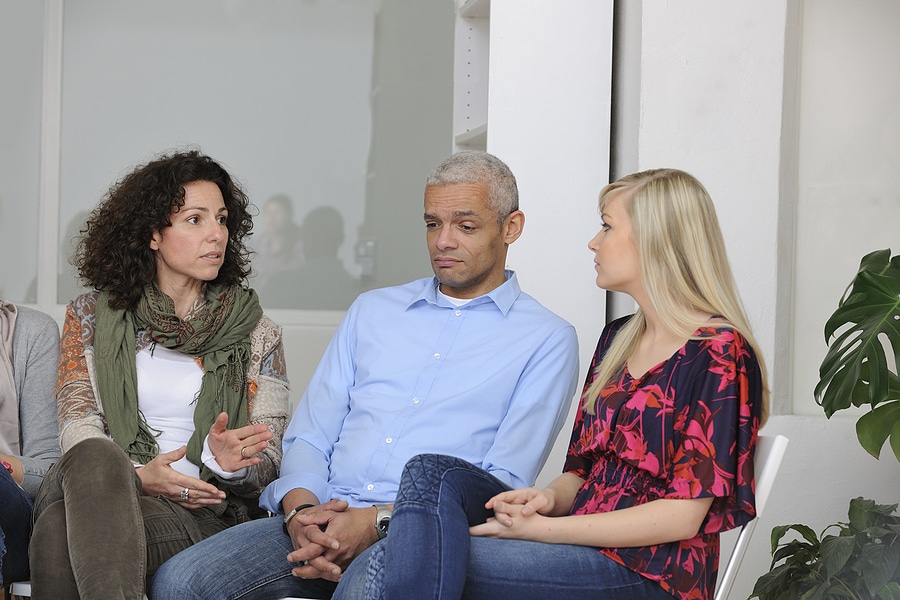When a loved one is struggling with addiction, families often feel overwhelmed, uncertain, and unsure of where to turn for help. A substance use disorder program can provide the structured care and guidance needed for both individuals and their families. Understanding the challenges, available support systems, and the outcomes that can be achieved through treatment can make the path forward clearer.
Common Challenges Families Face
Addiction doesn’t just affect the person using substances—it impacts the entire family. Many families experience emotional distress, strained relationships, and financial burdens as they try to support their loved one.
One of the most common struggles is communication. Family members may feel frustrated by broken promises, repeated relapses, or defensive behavior. Conversations about addiction can lead to arguments or avoidance, making it difficult to express concerns in a constructive way.
Trust can also become a significant issue. Whether due to secrecy, dishonesty, or past incidents, families often feel conflicted about how to rebuild relationships while maintaining boundaries. At the same time, guilt and blame can weigh heavily, leaving some family members wondering if they should have done more to prevent or stop the addiction.
For many, knowing where to start is another challenge. The process of finding treatment, understanding different approaches, and determining the best course of action can be overwhelming. This is where a structured substance use disorder program can provide clarity and guidance.
How a Substance Use Disorder Program Supports Families and Loved Ones
A professional treatment program offers more than just a path to recovery for the individual—it also provides education, counseling, and support for families. At Paragon Health Services, treatment is designed to address both the emotional and physical aspects of addiction, ensuring that loved ones receive comprehensive care.
One way these programs help is by fostering open communication. Family therapy sessions provide a safe space for honest conversations, helping to rebuild trust and improve understanding. By learning how addiction affects the brain and behavior, families gain insight into their loved one’s struggles and can approach the situation with greater empathy.
Treatment programs also offer structured care that reduces the burden on families. Instead of trying to manage recovery alone, families can rely on professional guidance to navigate difficult situations, including withdrawal symptoms, mental health concerns, and relapse prevention.
Another key benefit is emotional support. Many families feel isolated in their experiences, but group therapy and family education sessions connect them with others facing similar challenges. This sense of community can provide reassurance and practical advice for coping with the ups and downs of the recovery journey.
What Families and Loved Ones Can Expect to Achieve Through Treatment
A well-rounded treatment program focuses on sustainable recovery, not just temporary change. One of the primary goals is helping individuals develop healthier coping mechanisms. Instead of turning to substances to manage stress or emotions, they learn new strategies through therapy, mindfulness practices, and structured routines.
Families can also expect improved relationships. As trust is rebuilt and communication improves, family dynamics shift toward healthier interactions. Many programs offer ongoing counseling even after initial treatment to help families adjust to life after rehab and maintain progress.
Another key outcome is relapse prevention. Addiction is a chronic condition, which means maintaining recovery requires continued effort. Through individualized treatment plans, aftercare programs, and peer support networks, individuals gain the tools they need to stay on track.
At Paragon Health Services, the focus is on long-term success. By addressing underlying mental health concerns, behavioral patterns, and emotional well-being, treatment programs provide individuals and their families with the skills and confidence to move forward.
Taking the Next Step
Seeking help for a loved one can be challenging, but it is a vital step toward healing. A substance use disorder program offers professional support, structure, and resources that make recovery possible. Families don’t have to navigate this journey alone—programs like those offered at Paragon Health Services are designed to provide the guidance needed for lasting change.
Paragon Health Services provides a pathway to better Mental Health and Community Integration through our programs for Psychiatric Rehabilitation, Substance Use Disorder, and our Outpatient Mental Health Clinic. We also offer services for the treatment of Depression, Anxiety, Schizophrenia, and Bipolar Disorder, as well as Individual Rehabilitation Programs.
We serve adults, children, and adolescents with mental health disorders in Randallsville and all of Maryland but focus primarily in the Baltimore Metro area. Call today to learn more: (410) 759-4777
We are truly invested in getting people to a better place in every way possible. Our outcome-driven programming and support is geared to address living, working, and social functioning so that individuals may tap into their strengths, rehabilitate, and experience a bright future.
In addition to providing wraparound support for clients, we are also passionate about supporting Social Workers, Placement Coordinators, Hospital Staff, and Families. We know that when we come together as a team, the entire community gets better.
- Could Your Loved One Need Treatment for Depression? - May 20, 2025
- How Individual Rehabilitation Programs Build Skills for Independent Living - May 5, 2025
- May Is Mental Health Awareness & Women’s Health Month! - April 30, 2025
